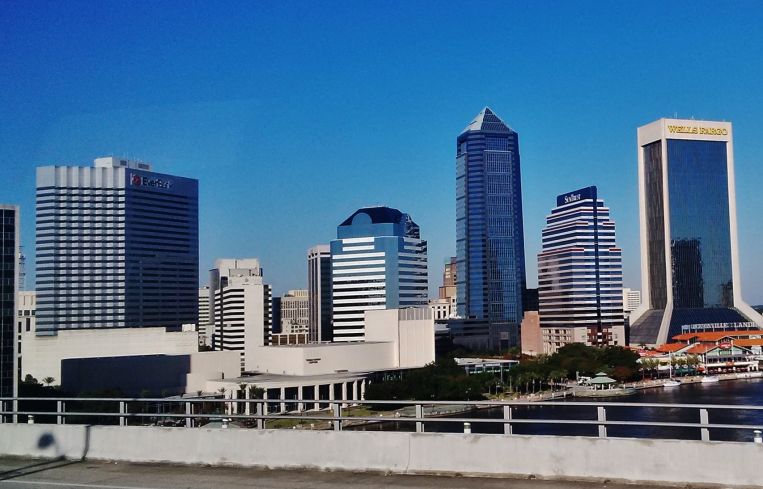CRE Distress Rose in Majority of 50 Largest MSAs in April
By Marc McDevitt May 9, 2023 11:15 am
reprints
Of the 50 largest metropolitan statistical areas (MSAs) tracked by CRED iQ, the overwhelming majority exhibited month-over-month increases in the percentage of distressed commercial real estate loans in April.
There were 42 markets with increases in CRE distress, equal to 84 percent of the 50 largest MSAs. The average increase in distress was approximately 80 basis points.
CRED iQ monitors distressed rates and market performance for nearly 400 MSAs across the U.S. covering over $900 billion in outstanding CRE debt. Distressed rates include loans that are specially serviced, delinquent or a combination of both.
Notable markets with the largest increases in distress last month included Minneapolis (plus 2.5 percent), Jacksonville (plus 2 percent) and San Antonio (2 percent).
The New Orleans (minus 1.8 percent) and Louisville (minus 1.1 percent) MSAs were among the few markets that exhibited month-over-month improvements in distressed rates during April 2023.
One of CRED iQ’s initial observations from new April data is that many incumbent markets with the highest distressed rates were also the same markets that exhibited the sharpest month-over-month increases in distress. In other words, the worst-
performing markets deteriorated at the fastest rates.
Last month, CRED iQ focused on the Minneapolis MSA, which ranks as the market with the highest overall level of distress among the 50 largest MSAs — equal to 25.2 percent. This month, a significant increase in distress in the Chicago MSA moved the market into position for the second-highest rate of CRE distress. In April, Chicago exhibited a 1.3 percent month-over-month increase in the percentage of distressed CMBS loans, which was one of the 10 largest increases among the 50 largest MSAs.
For a more granular analysis of the top 50 markets, CRED iQ further delineated individual markets’ distressed rates by property type for a comprehensive view by market sector. The market sectors with the three highest percentage increases in distress rates during April were office sectors: Atlanta (plus 16.5 percent), San Antonio (plus 13.2 percent) and Jacksonville (plus 6.8 percent).
Office distress in the Atlanta market was driven by a $350 million mortgage secured by a 2.2 million-square-foot, eight-property suburban office portfolio owned by Adventus Realty Trust. The loan transferred to special servicing in mid-March. Five of the collateral office properties are located in suburban Atlanta.
The San Antonio office market was adversely impacted by the Brass Professional Center, which transferred to special servicing on March 13. The 575,771-square-foot suburban office property secures a $56.3 million mortgage and was most recently reported as 71 percent occupied as of September 2022.
Increased distress was also notable across several hotel markets after a $982 million mortgage transferred to special servicing in April ahead of its June maturity date. The mortgage is secured by 34 Ashford Hospitality Trust hotels located across multiple markets.
Five of the Ashford Hospitality Trust hotel markets, in particular, showed relatively higher increases in distress as a result of the loan’s transfer to special servicing in April: Memphis, Jacksonville, New York City, San Francisco and Philadelphia. The hotel sector across each of these five markets each ranked in the 10 largest increases in distress among all of the market sectors tracked by CRED iQ.
The inclusion of Jacksonville-office and Jacksonville-hotel highlights a volatile month for the MSA, which had the second-highest increase in the percentage of distress CRE loans in April.
The hotel distress was derived from exposure to the aforementioned Ashford Hospital Trust portfolio and additional office distress was caused by a pair of 200,000-square-foot Duval County office buildings that transferred to special servicing in March — The Meridian at Deerwood Park and Greystone Park.
The Minneapolis MSA has the highest overall distressed rate at 25.2 percent and distress for the market is at its highest level over the past 18 months. Chicago (10.8 percent), Birmingham, Alab. (10.7 percent), Milwaukee (10.5 percent) and Cleveland (9.4 percent) comprise the remaining markets with the highest distress rates.
The Chicago MSA continued its dissension in the list of
poorest-performing markets, entering the top five last in March and descending further to the second-lowest ranking in April. The San Jose MSA (0.3 percent) displaced Salt Lake City as the market with the lowest percentage of distress among the top 50 MSAs.
Marc McDevitt is a senior managing director at data analytics firm CRED iQ.



